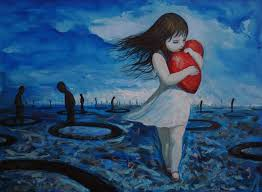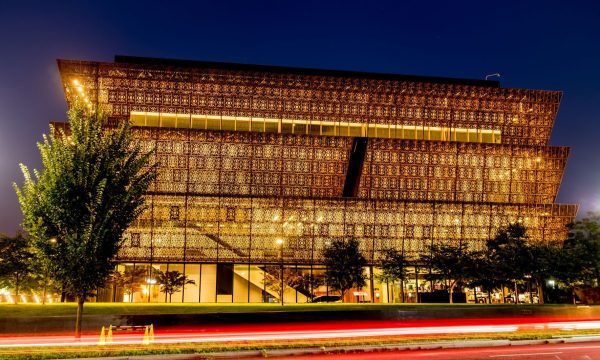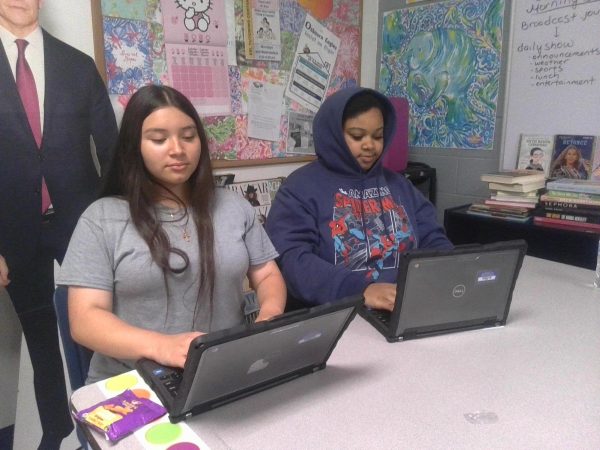Dealing With Grief: We All Handle Loss In Different Ways
What is grief? Grief is a strong deep emotion that takes over someone’s body after losing a loved one. Grief can come in many forms. It can be by the death of someone or simply when someone isn’t in your life anymore but they are still alive just not a part of your life so you have to grieve that person to move on. Grief for everyone looks different, some show what they’re feeling to the world others hide it. When two people are grieving about the same person it can be frustrating since if one person shows no emotions the other person thinks they don’t care but in reality, they are people going through that loss just differently. There are different stages of grief denial, anger, bargaining, depression, and acceptance. Some reach acceptance, others even years later can’t accept the loss of the person they loved and cared for and they still love that person they are still holding on to them and can’t let them go.
Clarifying more clearly some of the stages of grief with information from the book The 7 Stages of Grief. What does each stage of the process of grieving someone mean? There are many different reactions and emotions to finding out that a loved one is gone and was sadly taken away either by a natural death or taken from you due to other reasons or people. The most common stages of grief are shock, denial, anger, bargaining, depression, acceptance and hope, and processing grief but still after all these stages, there are many more different types of reactions and emotions when losing someone.
Shock is right when a person finds out the person they love is gone, that person during this earliest stage of grief is unable to process the news. This stage may last just a few hours or it can last days after receiving the news.
Denial is an overwhelming stage where people tend to deny everything and might for example set their mind that their loved ones are just sleeping or they’re just a trip away from home.
Denial is a common coping mechanism most people take in order to cope but anger is the stage where people feel powerless so they oppositely direct those emotions and use anger so that they don’t show their vulnerable emotions. Anger can also be directed at anyone even at the person they lost because for them it’s easier to be mad at someone than to be missing someone.
Bargaining is a stage of negotiation. People during this period say that they will become a better person or do anything just as long as those they loved would return back into their lives.
Depression is a long stage many don’t even move on from this stage depression is when people look at things the way they are and realize that they feel an emptiness and with that emptiness they might pull out from what their life was like before, some might feel numb or not want to wake up nor get out of bed.
Acceptance and hope at this stage they’ve already accepted that their loved ones are gone. To get to this stage it can take years or even a whole decade later some don’t reach acceptance, during acceptance people view things in a more positive light and more hopeful.
Processing grief at this stage can be different for everyone since everyone views and feels things differently, but some start processing their grief by acknowledging they are in pain, focusing on themselves physically, mentally, and emotionally, and reaching out for help either from professionals or with other loved ones.
“My Dad just had a sudden heart attack. I had just talked to him the day before, and he seemed completely healthy. He was sixty, and it was very unexpected. It was hard on me because, of my two parents, I was closer to my Dad. It was random, I was at work teaching a yearbook class. I got a call from my brother, which was weird because he only ever texts me, and I knew that I had to answer the call. I actually collapsed onto the floor crying when my brother told me. I drove from my work to my hometown, near Philly, and I have no recollection of that drive at all; I was just numb, in shock. I didn’t even pack a bag, so I had to buy all new things when I arrived,” said Ms. Lisa Miller
“So I think the shock was my first stage. I never had any anger. I think I did the shock and depression, but I was loudly upset. I was like, hard to calm down at the surface. Like I couldn’t believe it kind of thing. I had a really hard time, I struggled. I was more dramatic than my brother. He was just silent, and my mom who was divorced from my dad was just worried about what everyone thought, and where she should sit at the funeral. It was just chaotic. So that was when I really realized people handle things differently. Time helped me to heal; you don’t have a choice. I try to emphasize positive memories,” Miller continued.
Losing someone in your life, whether as an adult or as a child, can have a variety of effects on you.
“I lost my great-grandparents and I also have a person I love far away, but with my great-grandparents, I don’t remember much, but it was when I was little, I already understood the concept of death,” said Judith Turcios.
“I missed them during the hour of playing, they would make me laugh a lot. My great-grandmother couldn’t speak. She spoke with signs but I still understood her. My great-grandfather made me laugh a lot just like her. I missed them a lot, but one eventually heals. But even so, they are needed sometimes,” said Judith Turcios.
“It’s okay to cry if you want, but never forget that this person was someone special to you. Keep them in your heart and mind, the pain will pass and maybe they are in a better place, without suffering or pain, and they aren’t suffering in this cruel world,” Turcios added.
Understanding how to handle your emotions is crucial while dealing with this process.
Grief doesn’t always mean mourning someone that has passed, it can also mean that you cut contact with someone or you had to let go of a relationship, even if you still have to see them every day but they can’t be in your own life anymore.
“I’ve lost two people in my life, my grandma and aunt. My aunt’s death didn’t really hurt that much, but the one that really impacted me was my grandma. That woman was a great fighter; she had diabetes and heart issues. Losing her was a huge pain in my life and it was the first time I had lost a loved family member, “said junior Rosa Franco.
“The loss of my grandma affected me physically and mentally because I really loved her so much. She would always take care of me she would always worry about me. Her death affected me so much to the point that I wanted to eat a lot and had depression, well I still have a bit of depression. I had a lot of anxiety and I didn’t want to talk with anyone. I just wanted to always be alone,” Franco continued.
“I passed through all the stages of grief like I’ve stated before I had a lot of depression, and I didn’t want to eat; well actually I wanted to eat a lot, I would be alone I didn’t want to be or talk with anyone else. I was just focused on myself and I had distanced myself from everyone, and that’s why I’ve lost many friends in my life,” said Franco.
“A piece of advice I would give to anyone going through this right now would be that if you have lost someone, take time to heal. I know it sounds painful, but it’s better to let go of the past than to continue living in it because it affects you,” Franco concluded.
“I’ve lost my dad and I also lost someone in my life who didn’t pass away- they were my best friend. We basically grew up together from elementary to high school, and even though we had many years of memories, one day we went from talking every day to just walking past each other in the hallways. Even though they aren’t physically gone I still had to grieve them mentally,” explained an anonymous junior.
“They were a big part of my life. The day that I stopped being friends with them, it hurt me so badly- just like it did when I lost my father. Even months later, I still miss them and still care about them, but it isn’t the same anymore. When I lost this friend, I first went through anger. I was angry at them for not caring, then bargaining I would say if they came back into my life and we became best friends again that it would be different this time. Months later, I still miss the friendship, but I accepted the fact we will never speak again to each other. It’s for the better. They will always have a little space in my mind and my heart and those memories will always be stored in both my mind and heart,” continued our anonymous source.
Regardless of the reason for one’s grief, realize that the process may not look or feel the same way for everyone. If you need help dealing with grief, don’t be afraid to ask for help or to just talk to a trusted counselor or teacher.

Hey guys, my name is Kristen and I'm in 9th grade. I lived in Manassas my whole life and hope to travel somewhere exciting like Italy someday. I spend...







nataly galicia • Mar 15, 2023 at 1:19 pm
Grief is such a difficult thing to understand and describe, and this article explained it well. Some people may never stop grieving others try to escape it. This article did a great job at capturing grief and was very informative.
Matthew Beach • Mar 14, 2023 at 11:50 am
Very strong topic to discuss in this article. I just lost my best friend a few months ago, and I still wouldn’t say I’m quite through all the stages of grief. Overall exceptional job, keep up the good work!
Nickolas A Williams • Mar 14, 2023 at 10:13 am
Very detailed and informative. Great opening paragraph and great quotes which really sealed the deal with this article.
Dulce Lemus • Mar 14, 2023 at 9:34 am
The way people described on how they coped with the loss of a loved one and how they reacted in that moment was very real and raw. Loved this article as someone who relates to it.
Gabrielle Thigpen • Mar 14, 2023 at 8:34 am
coming form someone who has lost a sibling this article is excellent. If gave me a enough information about grief and how to handle it.
Nidia Perez Navarro • Mar 13, 2023 at 10:41 pm
I love how detailed this article is, how it first explains what grief is and what its stages are—followed by people talking about their vulnerable moments going through grief later.
Kenny • Mar 13, 2023 at 1:30 pm
This article is interesting and it’s very imformative. I like how it explains what grief is and what it is, like on a book called ” The 7 stages of Grief”. The people who got interviewed in this articale explained their grief and how they could cope. Very nice article and imformative.
Brian Lemus • Mar 13, 2023 at 12:18 pm
Overall I enjoyed this article and can relate to it. I like how you get different perspectives from how other people handle a loss. Great work